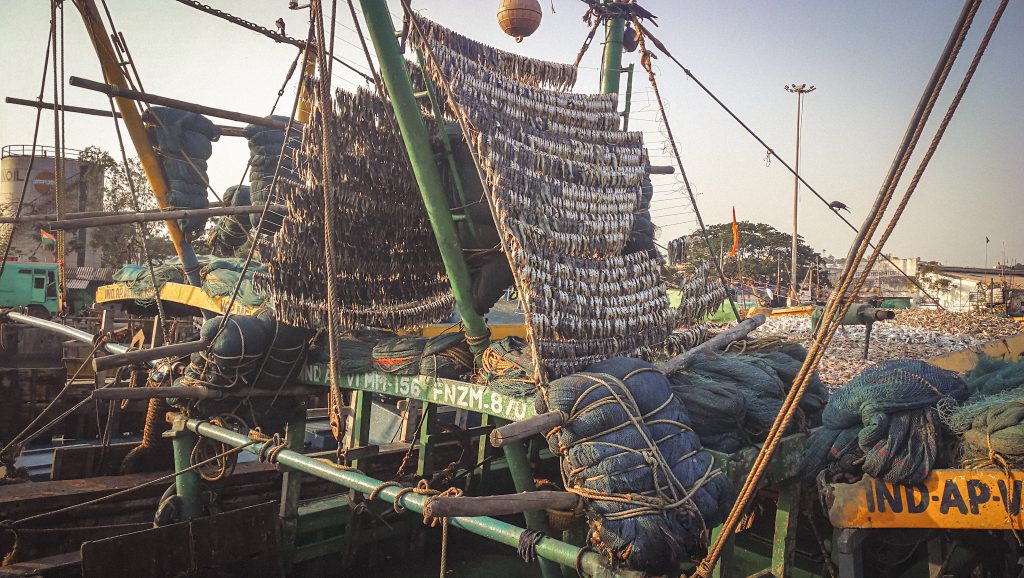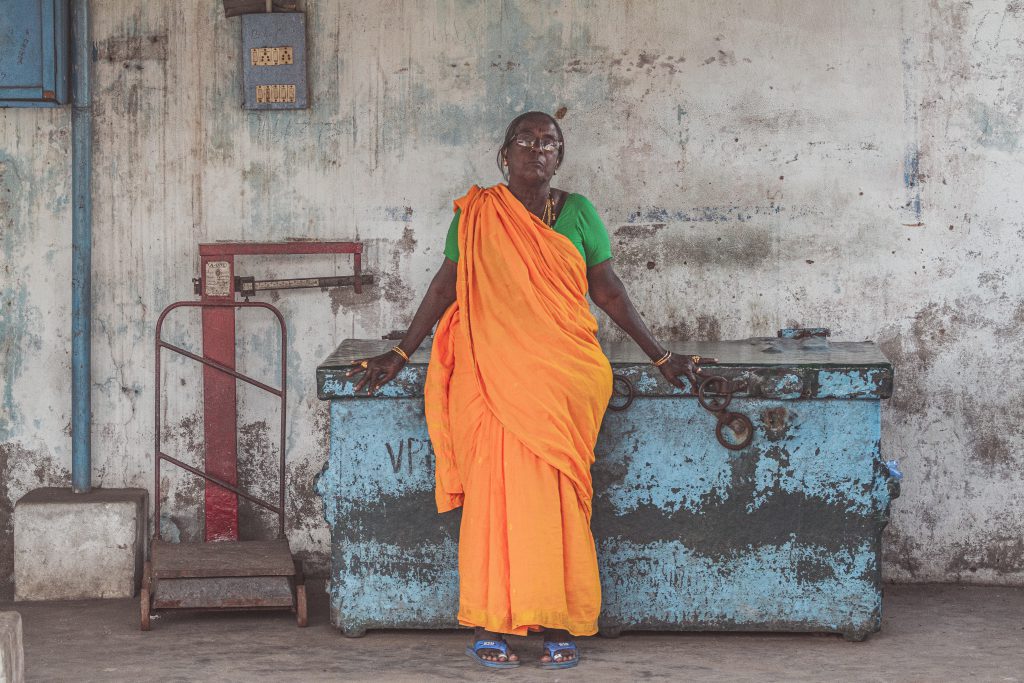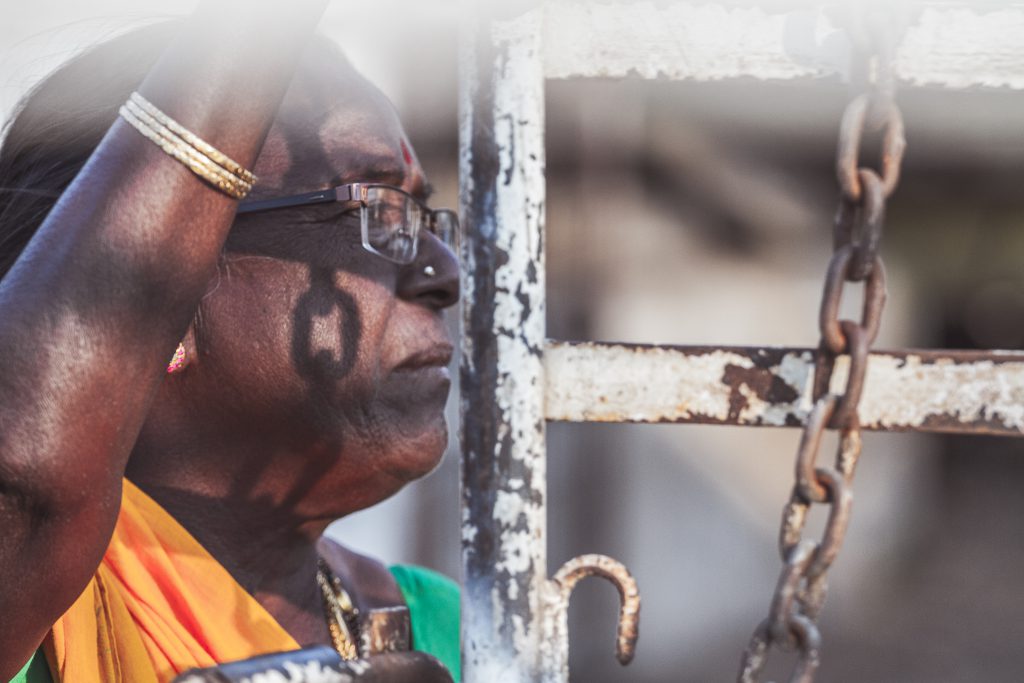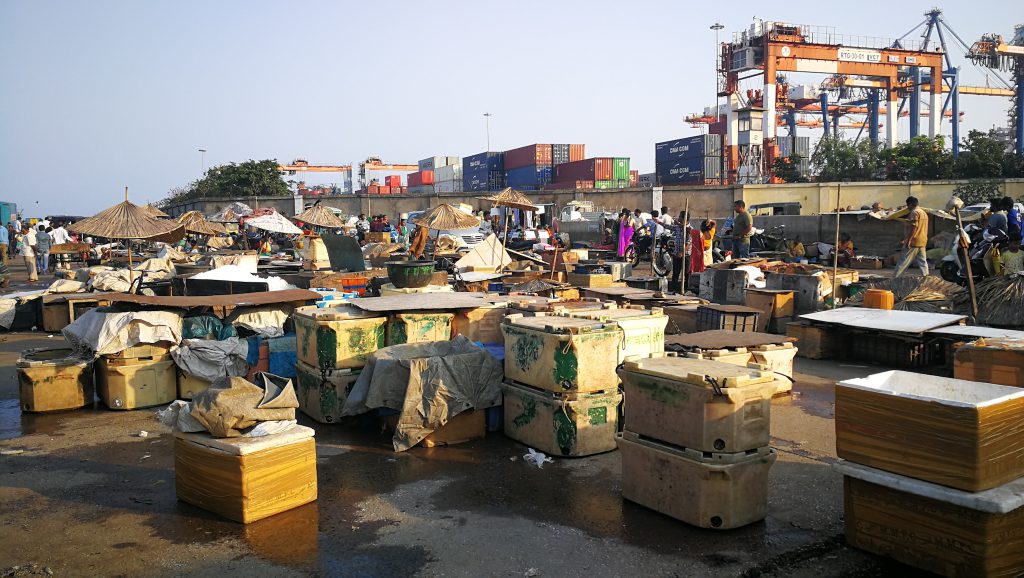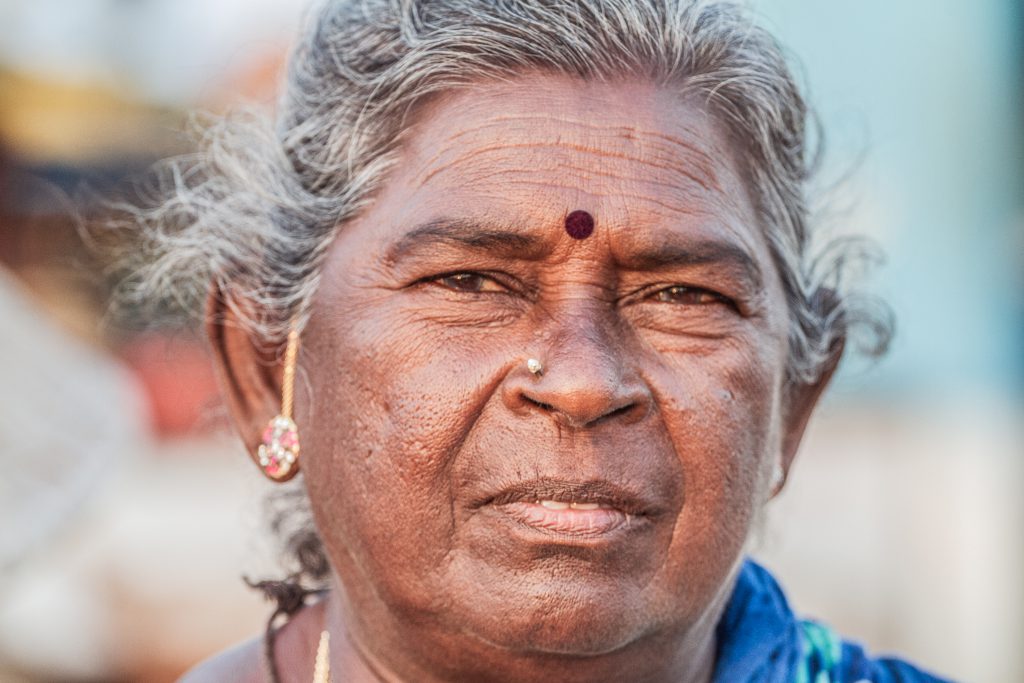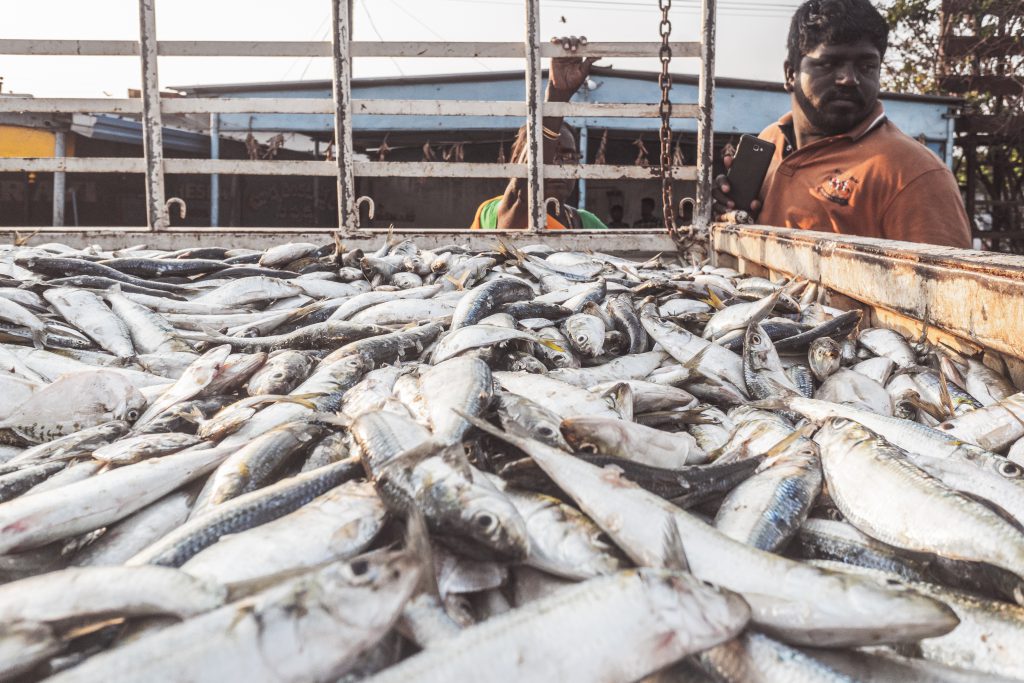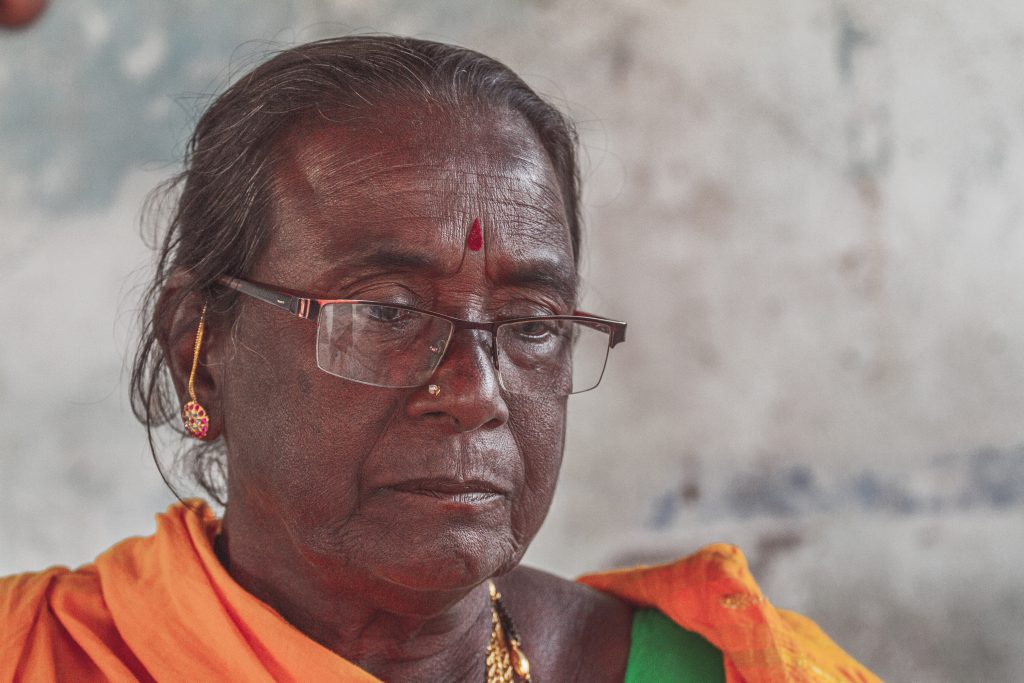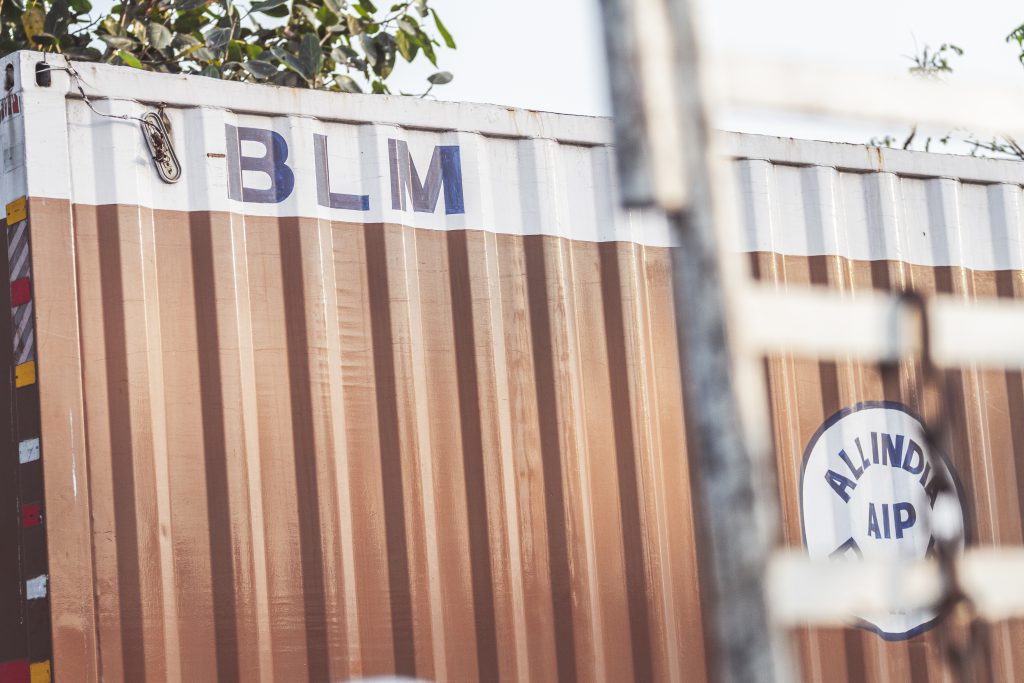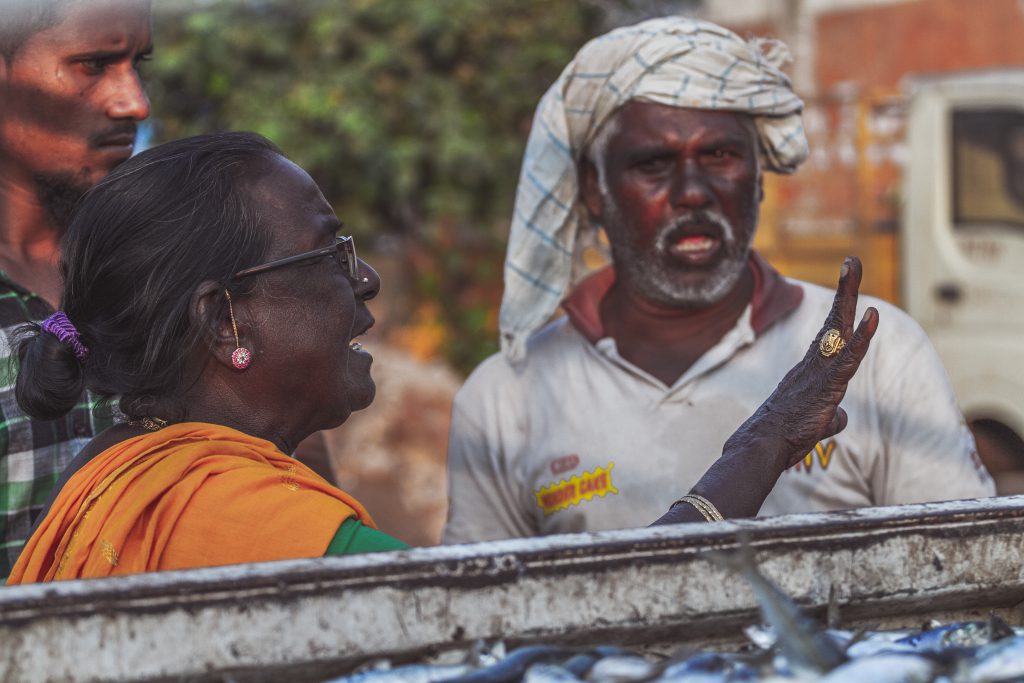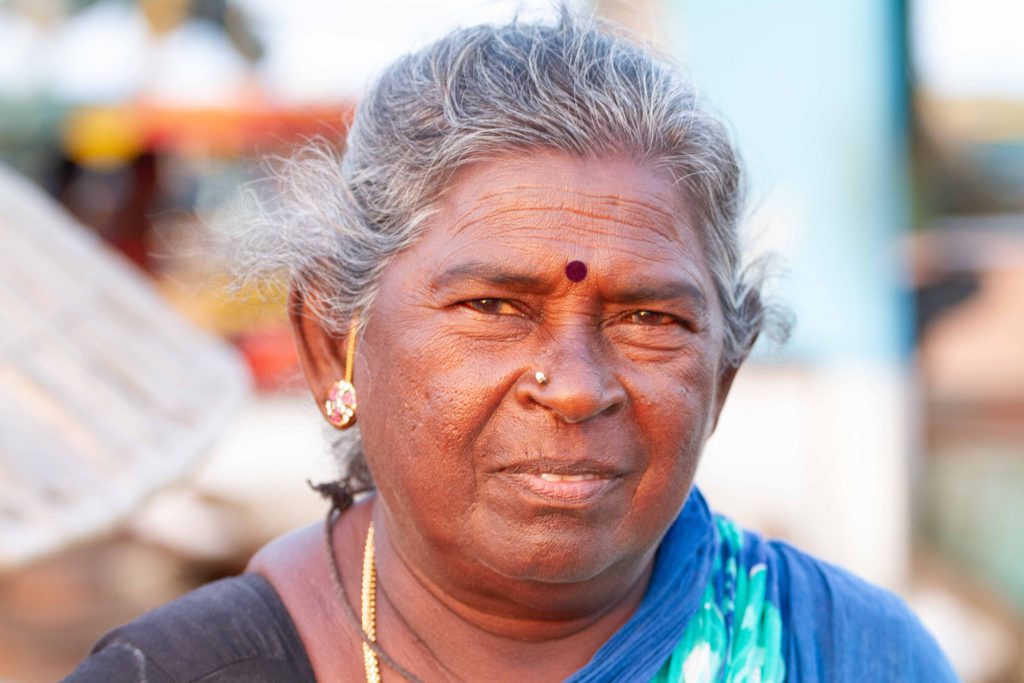Traditionally, fishing is mainly conducted by men. But now, in India, the presence of women is well established in the fish processing sector.
Visakhapatnam, aka Vizag, also known as “the city of the waves”, is one of the largest ports in India and is one of the thirty-one cities of the Indian subcontinent to ‘boast’ over one million inhabitants. It is a fast-growing city: in 1930 it had only three thousand souls, but now it swarms with cargo ships and fishing pirogues operating in this bay creating a continuous and colorful coming and going of sails. From dawn to dusk the fishermen and their sailing pirogues, named in the local language “Jalari”, leave the bay and drop their nets offshore and return to the shore, letting themselves slide deftly on the waves. The name of the village where the fishermen of this area of Andra Pradesh live is Jalaripeta, which means precisely the ‘boat village’ in the Telagu language. To date it appears that, in the state of Andra Pradesh, this is the last community to still use sailing pirogues in the practice of small-scale fishing.
The sails of the pirogues, however, are not the only protagonists of Vizag, in fact to dominate the scene of this ancient and frenetic port there are the sisters Buliamma and Nokalamma. Their names, as well as their family history, are on the lips of all the fishermen in the area. Lose yourself for this port, try it and you will have to believe us! Walking through a maze of roads, quays and canopies similar to an Escherian labyrinth, it can be difficult to navigate, since it is a land that extends for 24 hectares. And under scorching tin roofs, tired fishermen and sellers strategists camouflage themselves in the indefinite polychromatic panorama that has all the bright and radiant colors of India, just like the colors of the sari worn that day by Buliamma. The woman wore the shades of the “tiranga” (tricolor in Sanskrit), the Indian flag, or the saffron color to symbolize courage and green prosperity. After the non-dialogue with Buliamma, made especially of her severe looks towards our timid gestures of approach, we understood that she had had so much courage and cultivated since she was a child.
The feeling one gets when pronouncing his name is that, although many years have passed, Buliamma (65 y.o.) still has the same respect among the fishing community of 40 years ago, when he first arrived in the fishing industry. fish export. Buliamma, was not only one of the first women to enter the fishing industry, but has also earned a point of honor for a fair management of business with its enviable network of exporters from all over the country. He is said to be ruthlessly uncompromising when it comes to quality and work relationships. “But how did it all begin?” Originally from the fishing community of Jalaripeta, it was since his teens that he accompanied his uncle to fishing. And it was on those occasions that he began to develop a particular sensitivity towards the living and working conditions of the small fishermen, who were exploited and paid for by the great traders. Buliamma had clearly understood that fishing was, perhaps, the only lifeline of a colossal wave of men at Vizag. At the age of 20 he decided to become part of that world, so ‘saturated’ by men, in an even more active way, giving life to his commercial fish business, BLM. His policy, in favor of the community of Jalaripeta, is still based only on the purchase of fish products from the neighboring areas of the community and from Vizag. A local product, which thanks to the courage of Buliamma and Nokalamma, managed to go beyond the sales network to local tourist facilities, trespassing towards the states of Kerala, Tamil and Maharashtra.
Season after season the fishing boats moored at the port of Vizag continue to shine in the light of the sunset of Vizag, and it is not only due to the effect of the silvery fish placed and drying on their master trees, but it is also thanks to Buliamma, who with the support and the loyalty shown by the entire community of local fishermen, is preserving the liveliness of the ancient port. She is, therefore, the true protagonist of the port of Vizag, the most respected and at the same time feared woman, even the youngest fishermen would like to do business with her. “The only thing we fear is his character, at times irascible,” says one of his collaborators. Listening to the various tales of the fishermen who crowded the docks, we can well understand that Buliamma’s reputation has been affected not only over time, but also during times of crisis for the sector, for example when demand exceeds supply. Fishermen already know that you will be the only person to buy their catch at a fair price. “I appreciate the hard work of these fishermen. I felt on my skin the difficulty of staying in the open sea for hours and sometimes for days, waiting for the nets to fill up. This is why my policy is to maintain a standard level in terms of both the demand for the catch and the purchase cost. ” Buliamma concluded severely.
For the ability to have created a virtuous circle in favor of the fishermen of Jalaripeta, but also of the marine environment of the area, Buliamma is an exemplary figure even for all his family members. His sister Nokalamma (57 y.o.) has always supported her and followed up to build her own business dedicated to the sale of shrimp and lobsters. The two sisters still live in the fishermen’s village from which their whole family comes, says Nokalamma: “We have always given each other strength, from facing the competitors, the representatives of the tourist facilities, the management and the finances linked to the BLM brand. ” Their strong commitment and the humanity invested in their work led them to ports in many cities in India, thus building a reputation for exporting fish. And while Nokalamma told us the story of his family with a smile of sweetness – so P.P. Pasolini describes the smiles of the Indians in “The scent of India” -, a small crowd gathered around the last catch of the day and, as proof of what he heard on that sultry afternoon when the energy of the port had us sucked deeply, we observed the peremptory action of Buliamma, who, without excessive negotiations, concluded the last affair of the day.
Buliamma, una donna capace di sfatare i luoghi comuni: “Le donne in mare portano bene”
Tradizionalmente, il mestiere della pesca è appannaggio degli uomini. Tuttavia, la presenza femminile è ben attestata nel settore della trasformazione del prodotto ittico in India.
Visakhapatnam, aka Vizag, soprannominata anche “la città delle onde”, ospita uno dei porti più grandi dell’India ed è una delle trentuno città del subcontinente indiano a ‘vantare’ oltre un milione di abitanti. E’ una città cresciuta velocemente: nel 1930 contava solo tremila anime, ma ora brulica di navi cargo e piroghe da pesca che operano in questa baia creando un continuo e variopinto andirivieni di vele. Dall’alba al tramonto i pescatori e le loro piroghe a vela, denominate nella lingua locale “Jalari”, escono dalla baia e calano le reti al largo e tornano a riva lasciandosi scivolare con destrezza sulle onde. Il nome del villaggio in cui vivono i pescatori di quest’area dell’Andra Pradesh è Jalaripeta, che significa per l’appunto ‘villaggio di barche’ in lingua Telagu. Ad oggi risulta che, nello stato dell’Andra Pradesh, questa sia l’ultima comunità ad usare ancore le piroghe a vela nella pratica della piccola pesca.
Le vele spiegate delle piroghe, però, non sono le uniche protagoniste di Vizag, infatti a dominare la scena di questo antico e frenetico porto ci sono le sorelle Buliamma e Nokalamma. I loro nomi, così come la storia della loro famiglia, sono sulla bocca di tutti i pescatori della zona. Perdetevi per questo porto, provateci e ci dovrete credere! Camminando per un dedalo di strade, di banchine e di tettoie, degne di un labirinto escheriano, può essere difficile orientarsi, giacché si tratta di un terreno che si estende per 24 ettari. E sotto roventi tettoie di lamiera, stanchi pescatori e strateghi venditori si mimetizzano nell’indefinito panorama policromatico che ha tutti i colori vivi e raggianti dell’India, proprio come i colori del sari indossato quel giorno da Buliamma. La donna vestiva le tonalità della “tiranga” (tricolore in sanscrito), la bandiera indiana, ossia il color zafferano a simboleggiare il coraggio e il verde la prosperità. Dopo il non dialogo con Buliamma, fatto soprattutto dei suoi sguardi severi verso i nostri timidi gesti di avvicinamento, avevamo capito che di coraggio, lei, ne aveva avuto tanto e coltivato sin da piccola.
La sensazione che si ha quando si pronuncia il suo nome è che, nonostante siano passati tanti anni, Buliamma (65 anni) abbia ancora lo stesso rispetto tra la comunità dei pescatori di 40 anni fa, quando approdò per la prima volta nel settore dell’esportazione ittica. Buliamma, non è stata solamente una delle prime donne ad entrare nel settore della pesca, ma si è anche guadagnata un punto d’onore per una gestione leale degli affari con la sua invidiabile rete di esportatori provenienti da tutto il paese. Si dice che sia spietatamente intransigente quando si tratta di qualità e rapporti sul lavoro. “Ma come iniziò tutto?” Originaria della comunità di pescatori di Jalaripeta, era sin dai tempi dell’adolescenza che accompagnava sua zio a pesca. E fu in quelle occasioni che iniziò a sviluppare una particolare sensibilità verso le condizioni di vita e di lavoro dei piccoli pescatori, che venivano sfruttati e sotto pagati dai grandi commercianti. Buliamma aveva ben inteso che la pesca era, forse, l’unica ancora di salvezza di un’onda colossale di uomini a Vizag. All’età di 20 anni decide di entrare a far parte di quel mondo, così ‘saturato’ dagli uomini, in maniera ancora più attiva, dando vita alla sua attività commerciale ittica, BLM. La sua politica, a favore della comunità di Jalaripeta, si basa tutt’ora solo sull’acquisto di prodotti ittici provenienti dalle aree limitrofe della comunità e da Vizag. Un prodotto locale, che grazie al coraggio di Buliamma e Nokalamma, è riuscito ad andare oltre la rete di vendita a strutture turistiche locali, sconfinando verso gli stati dl Kerala, Tamil e Maharashtra.
Stagione dopo stagione i pescherecci attraccati al porto di Vizag continuano a brillare all luce del tramonto di Vizag, e non è solo per l’effetto del pesce argenteo posto ed essiccare sui loro alberi maestri, ma è anche grazie a Buliamma, che con il supporto e la fedeltà dimostrata dall’intera comunità dei pescatori locali, sta preservando la vivacità dell’antico porto. È proprio lei, dunque, la vera protagonista del porto di Vizag, la donna più rispettata e allo stesso tempo temuta, persino i pescatori più giovani vorrebbero fare affari con lei. “L’unica cosa di cui abbiamo paura è il suo carattere, a tratti, irascibile”, afferma uno dei suoi collaboratori. Ascoltando i vari racconti dei pescatori che affollavano le banchine, si può ben intendere che la reputazione di Buliamma è rimasta intaccata non solo nel tempo, ma anche durante momenti di crisi per il settore, ad esempio quando la domanda supera l’offerta. I pescatori sanno già che lei sarà l’unica persona ad acquistare il loro pescato ad un prezzo equo. “Apprezzo il duro lavoro di questi pescatori. Ho provato sulla mia pelle la fatica di stare in mare aperto per ore e talvolta per giorni, aspettando che le reti si riempissero. Per questo la mia politica è mantenere un livello standard sia in termini di richiesta del pescato che di costo d’acquisto.” Buliamma concluse severamente.
Per la capacità di aver dato vita a un circolo virtuoso a favore dei pescatori di Jalaripeta, ma anche dell’ambiente marino dell’area, Buliamma è una figura esemplare anche per tutti i suoi familiari. Sua sorella Nokalamma (57 anni) l’ha da sempre appoggiata e seguita fino a costruire una sua attività dedicata alla vendita di gamberi e aragoste. Le due sorelle vivono ancora nel villaggio dei pescatori da cui tutta la loro famiglia proviene, dice Nokalamma: “Ci siamo sempre date forza reciprocamente, dall’affrontare i concorrenti, i rappresentanti delle strutture turistiche, la gestione e le finanze legate al marchio BLM. ”Il loro caparbio impegno e l’umanità investita nel loro lavoro le hanno condotte in porti di molte città dell’India, costruendosi così una reputazione nell’esportazione di pesce. E mentre Nokalamma ci raccontava la storia della sua famiglia con un sorriso di dolcezza – così P.P. Pasolini descrive i sorrisi degli indiani in “L’odore dell’India”–, una piccola folla si riuniva intorno all’ultimo pescato del giorno e, a riprova di quanto ascoltato in quell’afoso pomeriggio in cui l’energia del porto ci aveva risucchiato in profondità, abbiamo osservato il fare perentorio di Buliamma, che senza eccessive trattative, concludeva l’ultimo affare del giorno.

